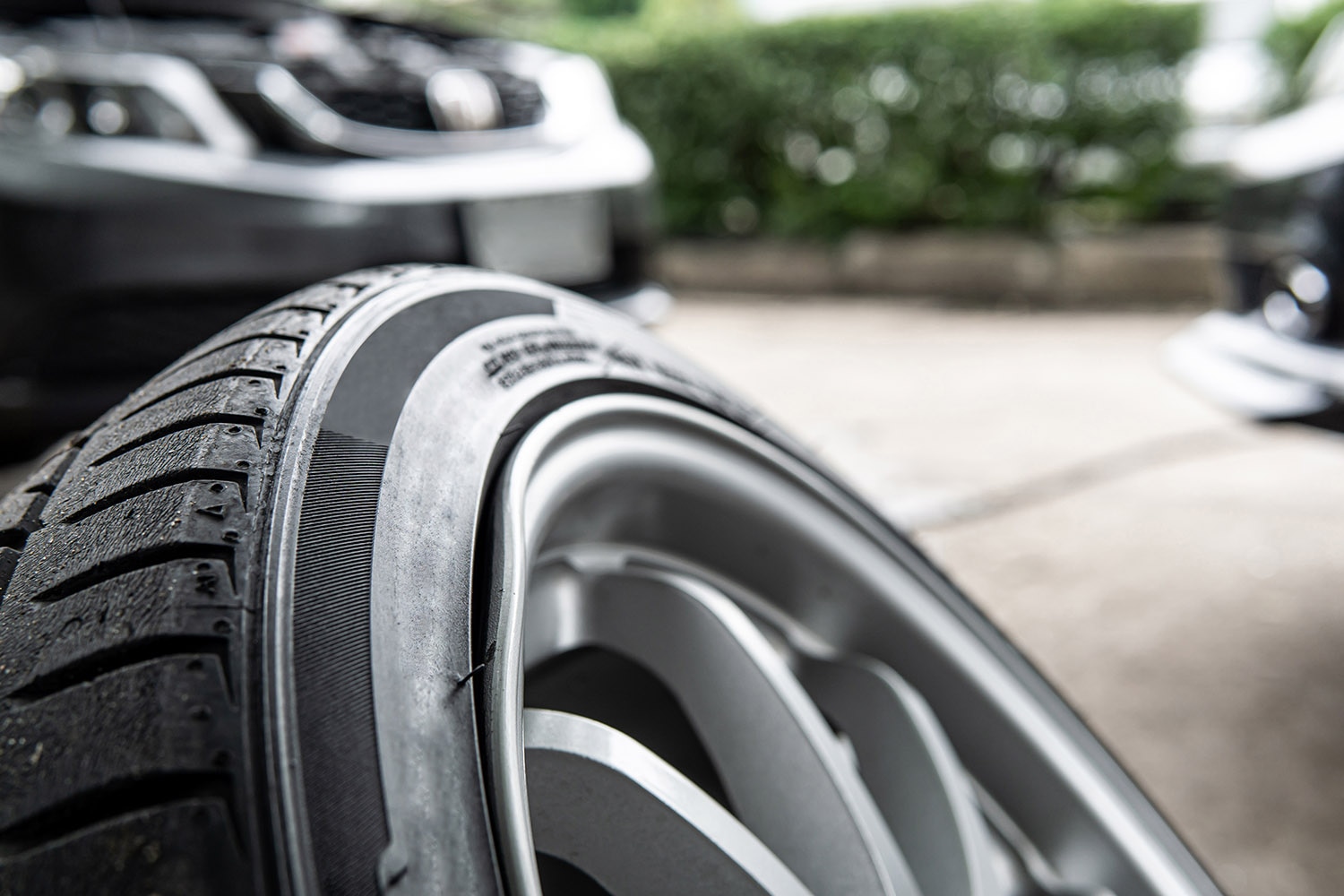Bent Wheels: How to Fix Them
Repairing a bent wheel can be more cost-effective than replacing it.
 Getty Images
Getty Images
Article QuickTakes:
Bent rims are among the most common automotive mishaps, partly because the shorter sidewalls on many modern tires offer less protection against potholes, curbs, and other lurking hazards. Bent wheel repair costs can start for as little as $65 per wheel, although the total will depend on the type and extent of the damage. There are many cases where wheel repair is a fairly easy and affordable alternative to buying a replacement. Here's a look at what you need to know before you head to the shop to have that bent wheel fixed.
Materials Matter
Wheels are typically made of either steel or aluminum alloy. Each material has pros and cons.
Steel is affordable and strong but also quite heavy. Steel wheels are often installed on entry-level cars or trucks and on vehicles aimed primarily at commercial buyers or off-roaders. Steel wheels generally feature simple, utilitarian designs painted black or silver, and they're frequently hidden under covers. They can be identified in part by their substantial weight.
Aluminum alloy is a more attractive material that combines aluminum with another metal (typically nickel). Alloy rims are quite strong, but they're much lighter than steel and can be found in a wider range of designs. Aluminum wheels are pricier than steel wheels.
Both types of wheels can be repaired, but it's best to have a professional evaluate major bends to determine whether the rim still has enough structural integrity to be driven on safely.
Repairing a Bent Steel Wheel
The simplest way to repair a bent steel wheel is to take a hammer and a block of wood and pound on the metal until it's back to its factory form. That may sound crude, but it's an effective technique that can often be done relatively quickly by a professional to correct some bends.
Repair shops also take other approaches to repairing steel wheels. Some use a metal press that applies heat and multi-angle pressure to reshape the wheel, although hammering may be used to fix smaller bends.
Regardless of which technique is used, a wheel balance is crucial after any repair to account for subtle changes in the shape of the rim that can't be detected by eye.
Given their low cost and more straightforward design, it may be cheaper or around the same price to buy a replacement steel wheel than to have a bend repaired.
Repairing a Bent Aluminum-Alloy Wheel
Alloy wheels have different structural properties and can't be repaired in the same way as steel wheels. Hammering on an alloy rim could create cracks and other damage, so a sledge and a block of wood simply won't cut it. Instead, more sophisticated techniques are required.
The wheel-straightening machines that work on steel wheels will also repair a bent alloy wheel, massaging out the bend after the metal has been heated. Temperature control is important, as overheating an alloy wheel can soften and weaken the metal. This step is usually followed by a turn on a lathe-like machine that uses additional pressure to further straighten the wheel.
Because of their higher cost, it can be less expensive to repair damaged alloy wheels than to replace them.



